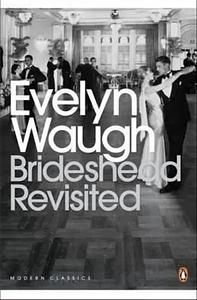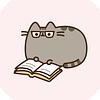Take a photo of a barcode or cover
emotional
hopeful
reflective
slow-paced
Plot or Character Driven:
Character
Strong character development:
Yes
Loveable characters:
Yes
Diverse cast of characters:
Complicated
Flaws of characters a main focus:
Yes
brilliant. absolutely brilliant.
I understand why this is a British classic, but I just didn't enjoy it 🤷🏼♀️
Possibly the most impressive literary pivot from gay to homophobic in a single novel.
Brideshead Revisited has got it all: family, friendship, religion, greed, love, sex. It is the story of a man and his connections with the Marchmain family and their estate, Brideshead. Brideshead is a microcosm of wealthy, troubled English life. It exists through the eyes of Waugh's larger-than-life characters. Of whom, the central trifecta is Sebastian Flyte, the rich and quixotic son of Lord and Lady Marchmain, whose teddy bear, Aloysius, is as important to him as his whisky; his sister, Julia, whose beauty is rivaled only by her fierce will; and narrator Charles Ryder, a mild-mannered agnostic artist who remains tethered to both brother and sister throughout the novel.
Interestingly enough, Waugh divides his novel into two parts as a means of exploring the relationship Charles has with each of the Flyte siblings: Book One, Et In Arcadia Ego and Book Two, A Twitch Upon the Thread. Book one devotes itself to Charles and Sebastian's relationship, while book two takes place years later, and details Charles's courtship to Julia while they both remain married to other people. In some ways, the siblings play at tug-of-war for Charles's heart; though he is with Julia, at no point does Charles admit that his love for Sebastian has diminished. He even refers to Sebastian as the "forerunner" (257 & 303) to the kind of love he has for Julia. It is never quite clear to which Flyte Charles's heart truly belongs as he admits, "I had not forgotten Sebastian. He was with me daily in Julia; or rather it was Julia I had known in him, in those distant, Arcadian days" (303). The nature of love is continuously called into question.
I breezed through this book in a way that I have not done in a long time. Waugh writes with a wit and charm that is both engaging and entertaining. He handles serious themes like Catholic influence, abandonment, love, obsession, and curiosity with equal parts humor and reverence. The characters, both central and secondary, are multi-faceted and diverse; each is driven by a different and unique credo. The cheeky and light-hearted dialogue works to mask some of the tougher questions the books asks like, "What does it mean to love?" and "What does it mean to be truly happy?" Charles searches for the answers to these and other questions throughout the novel. Of love, he suggests:
...perhaps all our loves are merely hints and symbols; a hill of many invisible crests; doors that open as in a dream to reveal only a further stretch of carpet and another door; perhaps you and I are types and this sadness which sometimes falls between us springs from disappointment in our search, each straining through and beyond the other, searching a glimpse now and then of the shadow which turns the corner always a pace or two ahead of us (303).
Brideshead Revisited is a comic tragedy, if ever there were such a hybrid. Though the ending does not lace itself around the novel in a neat bow, I found myself completely accepting of the ambiguity, the "small red flame" (351), and Charles's cheerful demeanor at the novel's close.
Interestingly enough, Waugh divides his novel into two parts as a means of exploring the relationship Charles has with each of the Flyte siblings: Book One, Et In Arcadia Ego and Book Two, A Twitch Upon the Thread. Book one devotes itself to Charles and Sebastian's relationship, while book two takes place years later, and details Charles's courtship to Julia while they both remain married to other people. In some ways, the siblings play at tug-of-war for Charles's heart; though he is with Julia, at no point does Charles admit that his love for Sebastian has diminished. He even refers to Sebastian as the "forerunner" (257 & 303) to the kind of love he has for Julia. It is never quite clear to which Flyte Charles's heart truly belongs as he admits, "I had not forgotten Sebastian. He was with me daily in Julia; or rather it was Julia I had known in him, in those distant, Arcadian days" (303). The nature of love is continuously called into question.
I breezed through this book in a way that I have not done in a long time. Waugh writes with a wit and charm that is both engaging and entertaining. He handles serious themes like Catholic influence, abandonment, love, obsession, and curiosity with equal parts humor and reverence. The characters, both central and secondary, are multi-faceted and diverse; each is driven by a different and unique credo. The cheeky and light-hearted dialogue works to mask some of the tougher questions the books asks like, "What does it mean to love?" and "What does it mean to be truly happy?" Charles searches for the answers to these and other questions throughout the novel. Of love, he suggests:
...perhaps all our loves are merely hints and symbols; a hill of many invisible crests; doors that open as in a dream to reveal only a further stretch of carpet and another door; perhaps you and I are types and this sadness which sometimes falls between us springs from disappointment in our search, each straining through and beyond the other, searching a glimpse now and then of the shadow which turns the corner always a pace or two ahead of us (303).
Brideshead Revisited is a comic tragedy, if ever there were such a hybrid. Though the ending does not lace itself around the novel in a neat bow, I found myself completely accepting of the ambiguity, the "small red flame" (351), and Charles's cheerful demeanor at the novel's close.
emotional
mysterious
reflective
sad
tense
medium-paced
Plot or Character Driven:
A mix
Strong character development:
Complicated
Loveable characters:
Yes
Diverse cast of characters:
No
Flaws of characters a main focus:
Yes
I finished this a couple weeks ago probably sometime before April 11. Aughhh I still think about them. Sebastian wanting something of his own and wanting to be needed, not taken care of, for once in his life. The way peoples and relationships can change so much over time so that the biggest things to you one summer are just echoes of something else another. Really loved the descriptions. Charles always looking at the moment, struggling to be in it and acknowledge that it touches him. I’m forgetting everyone’s names but the sisters guilt of living, wanting to sacrifice her life to it. I love stories where everybody’s to blame nobody’s to blame that’s just the way things r.
emotional
reflective
slow-paced
Plot or Character Driven:
Character
emotional
reflective
sad
slow-paced
Plot or Character Driven:
Character
Strong character development:
Yes
Loveable characters:
Yes
Diverse cast of characters:
No
Flaws of characters a main focus:
Yes
reflective
medium-paced
Plot or Character Driven:
Character
Strong character development:
Complicated
Loveable characters:
Complicated
Diverse cast of characters:
No
Flaws of characters a main focus:
Yes
Measured, some beauteous descriptions of beauty, amusing and easy to read. I can't say I was ever impressed . . . but Billy Ray Cyrus much to think about.jpg




